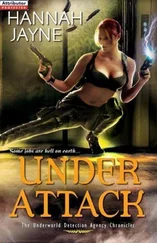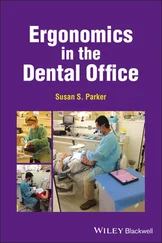For now, it was disguised. They didn’t have the prosthetic on hand, and so it was disguised with wrapping and a boot, the kind people wore when they broke their foot. She had a story to tell in which she was a klutz. People liked to hear about when you were a klutz, she decided.
But in all honesty, she didn’t care what people liked to hear about or what people thought about when they saw her with her boot and her wrap because all she could think about was how good she felt now that the foot was gone.
This feeling was a fleeting feeling, however. This feeling lasted not even two full days before it was gone and was replaced first by an itch at the base of her leg, around the place where her foot would have started if her foot had still been there, and was followed, not long after, by a sharp, but not as sharp as before, kind of pain.
At first, it was like she was being touched by a sharp piece of ice. And then it was like she was being jabbed by that piece of ice, or as if the sharp piece of ice were being worked into her skin, were working to gouge out some essential part of her there in that new and raw stump.
Or, and this was what she decided, it was like the sharp piece of ice was not on the outside working its way in, but was instead on the inside trying to dig itself out.
She unclipped the boot and unraveled the wrap and looked at the place where there had been a foot, but she couldn’t see what might have been going on.
She placed her fingers gently on the part of her that was still wrapped in gauze but couldn’t feel anything through the gauze and so she unwrapped the gauze, too, and tested the skin, the nerves, with the soft pad of her index finger and then with the rest of her fingers, and there she felt them.
She couldn’t see what they were, not yet, but she could feel them. With her fingertips, she could feel them pushing their way out of her stump, and they were sharp and cold and not ice but not unlike ice, either.
Not ice, no. Metal.
Everyone was scared of her now. The interns, the jerks in accounting, the office staff, the travel agency staff. Even the Operatives. Oh, boy, were they scared of her now.
They were more scared of her now than she could have ever hoped or wished for. They were the kind of scared of her that surpassed even the kind of scared they had been of Oyemi.
It helped, if helped was the right word, that the skin they’d grafted onto her mechanical arm to redisguise it had sloughed off, simply died and peeled off, leaving the shiny interior exposed.
The doctor, who was maybe the most scared of her, had no explanation for this, didn’t even correct her when she said it had just died and fallen away. The skin was synthetic. There had been nothing in it to die.
If they’d known about the other part of this, if they’d known about the way in which her own body seemed to be systematically targeted by the nanotechnologies in her arm, targeted for replacement and improvement, if they’d known about her foot, which she’d covered up with a shoe, if they’d known about any of this, they would have been the kind of scared of her that would have bled into a dangerous kind of scared.
The kind of scared that would have led them to draw up plans, perhaps. Execution and elimination plans, maybe. Dissection and examination and for-the-betterment-of-science plans, perhaps.
And she didn’t know that such plans hadn’t already been drawn up, did she?
No. She did not.
It had taken less than forty-eight hours for her body to grow a new foot, except that wasn’t right, considering the foot was mechanical, and her body couldn’t “grow” mechanical things, but there it was, a new foot for her. It had been painful, but only in the beginning. Less than forty-eight hours, but already other pieces of her were beginning to wither and die and would need to be replaced by machine. She could tell.
The decay wasn’t visible, but the post-decay replacements were. More of her than just her foot and her arm was beginning to feel inorganic. Her ankle, the lower edge of her calf. The toes on her other foot, four of them, including her big toe, were skinless and had a metallic shine to them. They smelled like pennies or nickels or maybe they just smelled like mechanical toes. When she touched them — and she couldn’t stop worrying at them as if they were loose teeth — they were cold and smooth and hard.
Her shoulder.
She’d felt none of this, though. There’d been no pain since the foot. This was a thing she was grateful for but also she couldn’t be sure how grateful she was or should have been. She didn’t like pain. She wasn’t the kind of person who sought out pain and suffering. But without the pain, what then?
Without the pain, would she wake up one day and find herself replaced, entirely replaced?
Regardless, though, the nanotechnologies — that was her only guess as to what was causing all of this — seemed to be learning, seemed to be engaged in some kind of trial-and-error process. After her foot, this — whatever this was — had developed a new process of find and replace, something less painful or intrusive or physically stressful.
She had no idea what happened to the organic material once it died. She had no idea what happened to the pieces of her that had been her and had since been replaced.
She half expected to find a bevy of toes or other patches of herself gathered at the foot of her bed, tangled in the sheets and duvet like socks kicked off during sleep, but there was never anything there.
She showed the doctor her homegrown foot but didn’t show him anything that came after. It was a shame, really. Before all of this, he had finally become a little more comfortable around her. Had apparently forgiven her for crushing his leg so long ago, for destroying his lab. Now he avoided looking right at her, and she felt each day more strongly this need to have him removed — from his position, from the Regional Office entirely.
He had been there almost from the beginning. Mr. Niles had brought him in on their second meeting together. Mr. Niles had told her, I can help you with your problem, but you’ll have to be willing to help us out with ours, too, and when she had offered to pay whatever price he would charge, he had waved that away and told her, That’s not exactly the kind of help we need right now. Then he’d called the doctor into the office, introduced the two of them, described for her the work the doctor had been doing — cutting-edge nanotechnologies, beyond joint or bone replacement — and then explained to her that she would have access to the entire Regional Office if she would be willing to act as a test subject for a new mechanical arm the doctor had devised.
“You won’t be able to tell a thing,” he’d told her. “No one will be able to tell.” Then he’d held up the doctor’s hand, held it by the wrist, and said, “See this, see this hand? Mechanical, the whole thing.” She’d been shocked, amazed. She had seen high levels of robotic technology on campus, some of the highest, but nothing had ever pointed to something so advanced as this. She asked if she could touch it. Mr. Niles offered it to her, the doctor standing there like a living doll, and it felt warm and pliant and so very real.
“Okay,” she’d said. “Yes, okay, yes, I will do this.”
Only later, long after her own surgery, after being given her own mechanical arm, had the doctor told her, in whispering, confiding tones, that his hand wasn’t mechanical at all. He waved his hand in front of her. Shook it, really. Told her, “Blood, bone, nerves.” Then he chuckled and she barked out a chuckle of her own, and then he laughed a loud and only-barely-on-the-edges-of-sanity laugh, and she laughed with him because it was too late, by then it was way too late, and they’d been right. Mr. Niles and the doctor had taken a risk with her and her arm but it had paid off because you couldn’t tell. You looked at one arm and then the other and they looked the same, exactly the same.
Читать дальше












